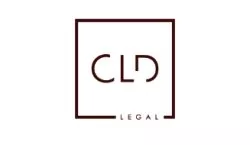The commercialization of products such as food, cosmetics, medicines can be a lucrative activity of great interest, however, to sell them on the market, several requirements must be met to ensure the quality and safety of the product, in its manufacture, import, distribution and marketing , ensuring that the product is not harmful to the health of the consumer.
In Panama, the normative in charge of setting the requirements for health licenses, is the Law 21 of 2001 on medicines and other products for human health. The Law contemplates regulations for medicines, biological products, dietary and vitamin supplements, cosmetics, pesticides, for example, and any other product related to the health of human beings, that exists or may exist.
The Law establishes the principle of the duty of registration before the health authority; which means the obligation to request the sanitary registration corresponding to any product that is indicated in the law, which leaves to the opening the creation of new products that are not contemplated in the law, precisely to fulfill the constitutional obligation in which the State has to ensure the health of the population, contemplated in article 9 of the Political Constitution of Panama.
Meanwhile, in the case of food, Executive Decree 331 establishes the obligation of the sanitary registry for all processed, bottled and packaged foods or beverages that have undergone any transformation in Panama, and are marketed under a specific name and brand. There is also a mandatory registration for products manufactured abroad and imported into national territory, in these cases, the Panamanian Food Safety Authority has the competence to issue the relevant records.
The aforementioned also applies to those products that are made in workshops or houses and that are packed and sold by a natural or legal person, as an example would be cookies, sauces, pickles among others, despite the misconception of consider them as artisan products because they are not made with industrial methods.
Unlike the common conception that exists, only 50 products are considered as artisanal food products. Resolution 747 of 2017 of the Ministry of Health is responsible for regulating artisanal food products, among which are: panela or raspadura, artisanal bread, natural tropical fruits duros, among others. However, these foods must be made with the ingredients and utensils contemplated by the resolution and by a person who has the artisan card to be considered as artisanal.
Even artisanal food products must have the mandatory permits that ensure food safety. Therefore, the place where they are produced must have certain standards and pass the inspection by the entity in charge. Also, the final product must have the sanitary registration of artisanal food.
Except for the few exceptions contemplated in the regulations, all products, regardless of their method of production, quantity, market to which they are addressed, must have a valid sanitary registration in order to be distributed in the national territory. It will only depend on the type of product, manufacturing method and place of origin, the institution where the procedure should be carried out: Ministry of Health, before the Pharmacy and Drug Direction or the Department of Food Protection, or the Panamanian Security Authority Food.
Not having the sanitary registry for your product can lead to different legal repercussions, both at the sanctioning level like fines, withdrawal of the product and closing of the establishment, and also possible civil and criminal actions that can be initiated by third parties.
The content of this article is intended to provide a general guide to the subject matter. Specialist advice should be sought about your specific circumstances.


